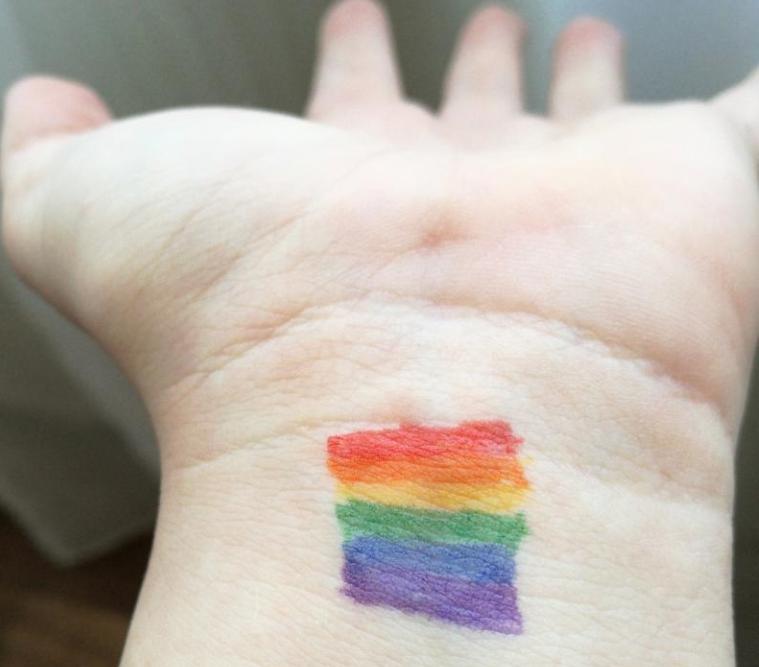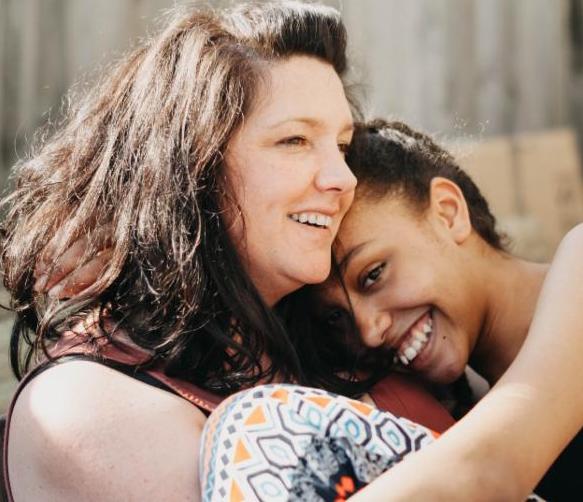 |
Continuing Strides in North Carolina: Preconception Health Summit
The goal of this summit was to bring together leaders and community members across
North Carolina for a day-long meeting focused on preconception health, addressing disparities, and building state momentum to take action in communities, clinics, and political settings.
This powerful day focused on improving HEALTH CARE for women AND men, addressing the social determinants of health, and strengthening entire families and communities.
There was much discussion about working with communities to make sure they had the care, resources, and support they need to ACT on preconception health science and recommendations.
Community members, health educators, program and policy leaders all had voice at this event.
Some of our key takeaways and m
essages:
Listening to a Woman's Perspective: "
No one asked me. I was 14. My friends were older. I am part of a religious family. I didn't know about health. If I had been asked about my life plan or health/family goals, I could have been advised. It is important to inform youth about the impact our choices and health will have on future generations... now I have a 10 year old son asking about sex. If he's asking, he isn't
too young to have 'the talk'." We heard from a Johnson C. Smith University graduating senior and peer educator about how critical it is for us to ASK and start these conversations, then provide trusted, relevant support to young adults and their various supports.
Language Barriers & DACA: Culture impacts behavior, beliefs, and communication. Fiorella Horna asked us: why do we isolate young adults with language barriers with our educational materials and campaigns? It is important to that we find ways to support young adults who may not understand or be reached with our preconception messages. We need to be mindful of how health policies are impacting children of immigrants: explaining what policies may mean for them and their families.
Creating Harmony: Consider how we are advancing and oppressing certain people and entire demographics: What are we doing to challenge racism? All social identities are created based on institutional power. Sometimes you need someone to clean your lens (or offer an entire new perspective and view).
Creating Safe Spaces:
Health providers: what gender/orientation options are listed on your screening tools? Is your care setting welcoming, non-judgemental, and inclusive? As public health and community leaders, are we supporting young adults in achieving their goals, without judgement, and considering the context of them in their lives and environments?
Engaging Communities: North Carolina is leading the way in preconception peer educator programs. There are over 70 existing programs, with 31 very active schools and many HBCUs. During the morning keynote, Sarah Verbiest challenged us to reach across parties, industries, communities, and programs if we want to make real, impactful, long-term changes in our outcomes.
Congratulations to the NC March of Dimes, Every Woman NC, and Latina Sana NC for a very successful Preconception Health Summit! As Shelby Weeks said, "Now let's move from theory to ACTION!"
and be sure to subscribe to their newsletter!
|
Mark Your Calendar! IM CoIIN Events
Preconception IM CoIIN All-State, All-Team Virtual Meeting -
June 15th at 3pm ET:
All team members are encouraged to join our all-state team call to check-in on progress, share successes and challenges, learn about specific supports available, and more. For more details, email
Katherine Bryant.
IM CoIIN "Universal" TA Webinar Series -
Led by the DATA team (Abt Associates) and open to all CoIIN teams. For details, email IMCoIIN@abtassoc.com. Upcoming topics include:
May 30th, 3:30-5pm ET - Human Centered Design
June 27th, 3:30-5pm ET
- Understanding Your Current State with Structured Observation and Process Mapping
July 11th, 3:30-5pm ET
- Quarterly IM CoIIN Update for Stakeholder & Fellow Champions
|
|
|
MEN'S HEALTH MONTH
#MensHealthMonth will be celebrated in June. An easy way to get involved is to ask your team to wear blue and then post your men's health awareness message using #ShowUsYourBlue on your social media. Stay tuned for
details about a Men's Health Week Tweet chat, discussing how men's health can impact the health of our future generations.
PRIDE WEEK
 Communities across the US are coming together on June 23-30th to celebrate LGBTQIA+ Pride Week. Across the globe, various events are held as a way of recognizing the influence LGBTQIA+ people have had around the world.
Find out what is taking place in a city near you. Communities across the US are coming together on June 23-30th to celebrate LGBTQIA+ Pride Week. Across the globe, various events are held as a way of recognizing the influence LGBTQIA+ people have had around the world.
Find out what is taking place in a city near you.
|
PCHHC In Progress Webinar
Join us for a PCHHC "Preconception In Progress" Webinar on June 19th, 1-2pm ET on
providing comprehensive, welcoming care for the LGBTQIA community.
RSVP Today HERE.
CoIIN Teams: Attendance for this webinar is completely OPTIONAL.
|
Preconception Health Bi-weekly Updates
|
Sign up for the
CDC's bi-weekly updates on preconception and interconception health by
emailing Cheryl Robbins
(ggf9@cdc.gov). A great resource for everything happening in the industry, across the country - and world!
|
|
|
Stay connected! Follow along and join the conversation:
|
|
ABOUT HRSA IM CoIIN PRECONCEPTION PROJECT: This project is supported by the Health Resources and Services Administration (HRSA) of the U.S. Department of Health and Human Services (HHS) under grant number UF3MC31239-Providing Support For The Collaborative Improvement and Innovation Network (CoIIN) To Reduce Infant Mortality. The grant amount totals $1,494,993. This information or content and conclusions are those of the author and should not be construed as the official position or policy of, nor should any endorsements be inferred by HRSA, HHS or the U.S. Government.
|
|
 |
|
 |
|
|
Getting It Right: Culturally Competent, Inclusive, Welcoming Care
|
|
The LGBTQIA+ community is immensely diverse. While L, G, B, T, Q , I, and A+ (Lesbian, Gay, Bisexual, Transgender, Queer or Questioning, Intersex, and Asexual or Allied) are usually tied together as an acronym that suggests homogeneity, each letter represents a wide range of people of different ages, races, ethnicities, socioeconomic statuses, and identities.
What binds this community together as gender and sexual minorities are common experiences of stigma and discrimination, the struggle of living at the intersection of many cultural backgrounds, and a long history of discrimination and lack of awareness of health needs by health professionals.
June is LGBTQIA+ Pride Month, and we are amplifying this topic so we can better serve this population. In our IM CoIIN work, we have the opportunity to raise
the bar and advance the quality of care these communities receive. Read on to
learn more about how to improve interactions and integrate inclusive tools and procedures into systems of care and community programs.
|
|
Listening and Learning in Clinical Settings
|
 The LGBTQIA+ community experiences a number of healthcare disparities, many result from discrimination, bias and social pressures as well as some personal sexual behaviors. Inequities include limited access to health insurance, higher rates of smoking and alcohol/substance misuse, higher rates of anxiety and depression, greater risk of sexually transmitted infections (including HIV), obesity, and increased incidence of some cancers.
The LGBTQIA+ community experiences a number of healthcare disparities, many result from discrimination, bias and social pressures as well as some personal sexual behaviors. Inequities include limited access to health insurance, higher rates of smoking and alcohol/substance misuse, higher rates of anxiety and depression, greater risk of sexually transmitted infections (including HIV), obesity, and increased incidence of some cancers.
When providers encounter LGBTQIA+ individuals in the clinical setting, they may create or contribute to these barriers due to lack of understanding and personal bias. It's our duty to provide a welcoming environment in clinics for all patients. Below are some unique challenges the LGBTQIA+ population may face in managing their care as well as some resources. It is important to know this as we create tools and protocols to better serve and meet their needs.
Understanding the Gender Spectrum & Terms

Physical Health Issues
Physical inactivity, obesity, and smoking have all been found to be more prevalent among lesbians than other women. Harassment, physical violence due to their sexual orientation, and
intimate partner violence (IPV) are also more common among lesbians than straight adults.
Bisexual women are
more likely to report
higher BMI, blood pressure, cholesterol, and tobacco and alcohol use than heterosexual and lesbian women. Some research suggests that bisexual adults are more likely to engage in
physical activity
than heterosexual adults. Similar to lesbian and gay people, bisexual adults are also more likely to report
experiencing IPV
than heterosexual adults.
Tobacco and alcohol use
are prevalent among gay men, increasing their risk for heart disease and several types of cancer. Data also show that gay men generally experience two types of
violent victimization
: criminal violence based on their sexual
orientation, and violence from an intimate partner.
Research related to how physical health issues, including studies of how medical interventions, such as hormone therapy and/or sexual reassignment surgeries, affect the overall health of transgender people is extremely limited. Physical and sexual violence against transgender people, especially transgender women of color, continues to occur.

Mental Health Issues
Many factors affect the mental and emotional health of lesbian women.
One study
found that negative reactions from parents and caregivers in response to women's sexual orientation were closely correlated with poor mental health.
Multiple studies have shown that
depression and anxiety affect gay men
at a higher rate than the general population, and are often more severe for men who remain "in the closet".
Researchers have suggested that bisexual adults have the
lowest level of emotional well-being
compared to people of other sexual orientations. Recent studies have also shown that bisexual men and women consistently report higher levels of depression and anxiety than heterosexuals.
Data on the prevalence of mental health disorders among transgender people
are extremely limited
. To date, few studies focusing on mental health disorders among transgender people actually compare the mental health of transgender t
o non-transgender people.

Sexual Health Issues
Recent research has found that lesbian women -- as well bisexual women with larger numbers of female partners -- are more likely to experience
vaginosis, trichomonas vaginalis, and herpes.
Research shows that bisexual women are
more likely to report higher risk sexual behaviors than heterosexual women. Among bisexual men, data have shown that some groups report less risky sexual behavior with males, but more risky sex with females compared to heterosexual men.
The fact that men who have sex with men (MSM) are at an
increased risk of HIV infection has
been well documented. Other sexually transmitted infections (STIs) are also highly prevalent among sexually active gay men
.
Due to a lack of systematic surveillance and reporting of HIV and STI rates among transgender people, the exact prevalence of these infections among this population remains unknown. Known disparities exist in the availability of treatment services, though, with transgender women less likely to receive highly active anti-retroviral therapy than MSM and heterosexual women and men.
 Gender identity is just one piece of each individual's unique makeup. A person cannot choose to be transgender or how they identify (or not). Considering gender identity and sexual orientation is critical as we create or adopt reproductive health screening tools and have these reproductive health conversations with young adults.
A good start, always ask: "What do you like to be referred to as?"
|
Health Care Tools to Better Serve
the LGBTQIA+ Community
 For Patients: Out2Enroll
For Patients: Out2Enroll has an easy-to-use hub to find an LGBTQIA-friendly provider, FAQs about coverage, financial support, and a place to report discrimination.
|
|
|

From the Institute for Healthcare Improvement here are three great resources this month.
These IHI resources provide information on how to select changes and establish aims for your project, as well as understanding the root cause of the process or challenge you would like to improve:
|
Understanding the Needs of the LGBTQIA+ Community
|

There was a lot of content featured above that was pulled from our Every Woman Southeast June 2016 newsletter. This covers a variety of challenges the LGBTQIA+ community can face in their health care experience, along with resources to help communities better serve this population.
E
very Woman Southeast (EWSE) newsletters are a great source of information on a wide variety of health topics - from body art to menstruation and more.
|
Tell us: What is your favorite consumer health resource?
|
What apps, websites, tools do YOU use to manage your health or to learn more about taking action to improve your health/surroundings?
After reading this newsletter, do you feel that resource is a welcoming, inclusive source for young adults in marginalized communities?
Share your favorite resource; use #ShowYourLoveToday on your social media or directly message us.
|
|
|
 |